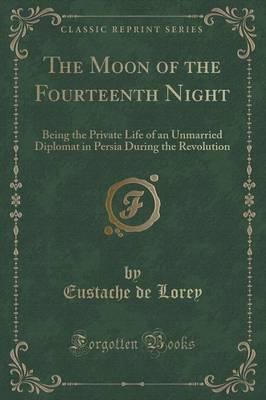Publisher's Synopsis
Excerpt from The Moon of the Fourteenth Night: Being the Private Life of an Unmarried Diplomat in Persia During the Revolution
The reminiscences end abruptly for two reasons. When Valmont found his great happiness, those which have been preserved dwindle to meagre dimensions. But it is possible that there were others lost in the con fusion of his assassination.
The reader will, I hope, excuse me if I point out how much of real political value is included in these gossiping reminiscences of Edouard Valmont. I think he must have meant to make a book of them himself, and I think he must have felt lonely at heart, because he gave so much time to his journal.
I might instance his picture of the death of Muzaffar ud-din Shah sitting up in his arm-chair in the Hall of Diamonds - surrounded by his heir and his brothers and his English doctor and the chief officials and mullas. Even more unique than the curious ceremonies, which followed his death, are those of the Coronation of his successor, Mohammed Ali Shah, whose brief reign all falls into the compass of this book. I have read nothing like this description anywhere; only a man who spoke Persian and was intimate with Persian Court life could have given us this Persian Coronation-service as he has. This alone would serve to Show that the reminiscences are not mere Legation gossip, but the thoughtful expres sion of what a diplomat saw in Persia, during one of the most trying and remarkable periods in the history of the country.
About the Publisher
Forgotten Books publishes hundreds of thousands of rare and classic books. Find more at www.forgottenbooks.com
This book is a reproduction of an important historical work. Forgotten Books uses state-of-the-art technology to digitally reconstruct the work, preserving the original format whilst repairing imperfections present in the aged copy. In rare cases, an imperfection in the original, such as a blemish or missing page, may be replicated in our edition. We do, however, repair the vast majority of imperfections successfully; any imperfections that remain are intentionally left to preserve the state of such historical works.










